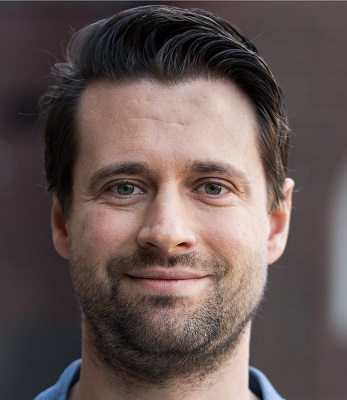Interview with Ricardo Vinuesa

Tell us a bit about yourself and your educational background; what inspired your interest in your field?
I am originally from Valencia, Spain, where I obtained my Bachelor in Mechanical Engineering. Then I carried out my Master and PhD studies at the Illinois Institute of Technology in Chicago, USA. I have always been fascinated by aeronautics, and I had the chance to dive deep into this topic, and particularly into fluid mechanics, during my studies in Chicago.
Receiving a new grand must be exciting. What did you receive the grant for, and what is your plan been in utilizing the grant?
I received an ERC Consolidator Grant, within the Excellence program of the European Commission. The project has to do with combining computer simulations and artificial intelligence to develop methods that will lead to more efficient aircraft. With this grant I want to give the opportunity to several doctoral students and Postdoctoral researchers to develop this topic under my supervision. We will also perform novel experimental work and we will have a number of international collaborations.
What is your research about?
My research has to do with turbulent flows, which exhibit chaotic motion, and are present in many different applications, including around airplane wings. I use mostly numerical simulations and artificial intelligence to predict and control the behavior of these flows.
What are the biggest challenges your work/research combats?
Turbulent flows are extremely complex: they constitute an unsolved problem of classical mechanics! Thus, they are difficult to simulate, predict and control.
Are you planning to develop your research in new directions?
Yes, I am working on developing novel artificial-intelligence methods capable of handling the complexity of these flow cases, with the ultimate goal of being able to understand them better and control them.
What do you view as your most important research accomplishment?
In my group, and thanks to the help of many great students and collaborators, we have pioneered the usage of deep-learning methods to study turbulent flows.
What advice would you give to youngsters interested in becoming scientists?
It is very important to study hard and to be curious, so as to keep an open mind for new ideas and opportunities. And more importantly, research is about enjoying the topics you work with.
How could we attract more young minds into the field of sciences? Are there any actions taken by your work environment about it?
It is important to show young people the incredible things that can be achieved through research. We are living very critical times (with the current climate emergency and other on-going crises), and science can really provide us with great solutions to these situations. I am part of the Board of Directors of ACES – an association for Spanish Scientists in Sweden, where we have many programs to attract young talent to science. This includes workshops, mentorship programs, trainings and social gatherings to provide informal mentorship.
Is it important for you to communicate your research to the world? If yes, why and how do you do that?
It is essential. We need to raise awareness on the important of science to our society, and the recent experience with COVID-19 shows how important this is. I am personally very active in social media performing dissemination tasks for a general audience, and I am also publishing often in general-media outlets (newspapers, radio interviews, dissemination articles, etc.) so as to reach out to the general public. I have also organized a number of dissemination events to try to reach out to a general audience, with the aim of raising awareness on the importance of science to everyone.
Text: Elina Charatsidou
